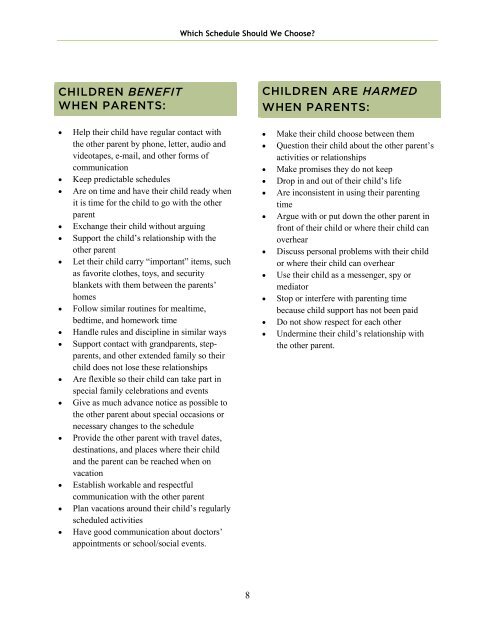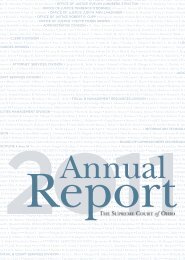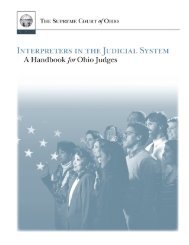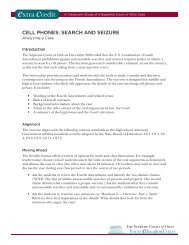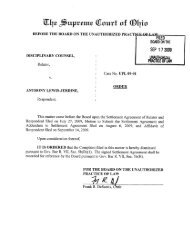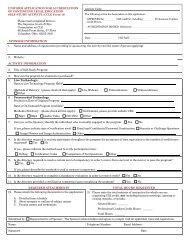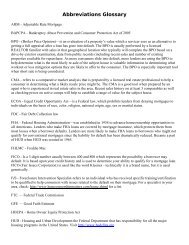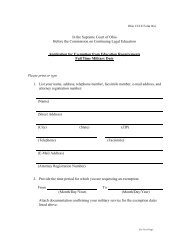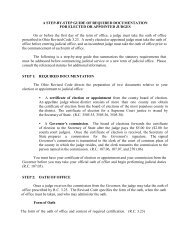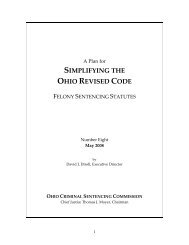Planning for Parenting Time: Ohio's Guide for Parents Living Apart
Planning for Parenting Time: Ohio's Guide for Parents Living Apart
Planning for Parenting Time: Ohio's Guide for Parents Living Apart
You also want an ePaper? Increase the reach of your titles
YUMPU automatically turns print PDFs into web optimized ePapers that Google loves.
Which Schedule Should We Choose?<br />
CHILDREN BENEFIT<br />
WHEN PARENTS:<br />
• Help their child have regular contact with<br />
the other parent by phone, letter, audio and<br />
videotapes, e-mail, and other <strong>for</strong>ms of<br />
communication<br />
• Keep predictable schedules<br />
• Are on time and have their child ready when<br />
it is time <strong>for</strong> the child to go with the other<br />
parent<br />
• Exchange their child without arguing<br />
• Support the child’s relationship with the<br />
other parent<br />
• Let their child carry “important” items, such<br />
as favorite clothes, toys, and security<br />
blankets with them between the parents’<br />
homes<br />
• Follow similar routines <strong>for</strong> mealtime,<br />
bedtime, and homework time<br />
• Handle rules and discipline in similar ways<br />
• Support contact with grandparents, stepparents,<br />
and other extended family so their<br />
child does not lose these relationships<br />
• Are flexible so their child can take part in<br />
special family celebrations and events<br />
• Give as much advance notice as possible to<br />
the other parent about special occasions or<br />
necessary changes to the schedule<br />
• Provide the other parent with travel dates,<br />
destinations, and places where their child<br />
and the parent can be reached when on<br />
vacation<br />
• Establish workable and respectful<br />
communication with the other parent<br />
• Plan vacations around their child’s regularly<br />
scheduled activities<br />
• Have good communication about doctors’<br />
appointments or school/social events.<br />
CHILDREN ARE HARMED<br />
WHEN PARENTS:<br />
• Make their child choose between them<br />
• Question their child about the other parent’s<br />
activities or relationships<br />
• Make promises they do not keep<br />
• Drop in and out of their child’s life<br />
• Are inconsistent in using their parenting<br />
time<br />
• Argue with or put down the other parent in<br />
front of their child or where their child can<br />
overhear<br />
• Discuss personal problems with their child<br />
or where their child can overhear<br />
• Use their child as a messenger, spy or<br />
mediator<br />
• Stop or interfere with parenting time<br />
because child support has not been paid<br />
• Do not show respect <strong>for</strong> each other<br />
• Undermine their child’s relationship with<br />
the other parent.<br />
8


